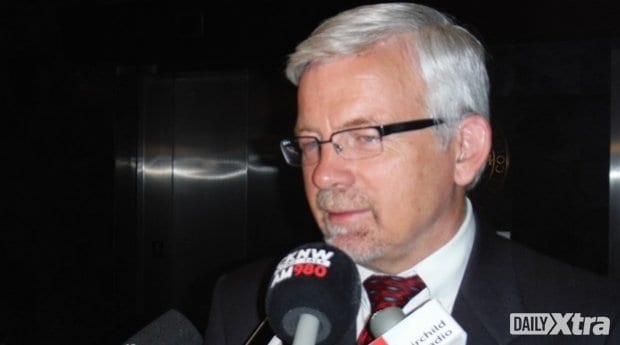British Columbia’s Trinity Western University (TWU) filed suit in BC Supreme Court Dec 18 to challenge the Law Society of BC’s (LSBC) refusal to recognize graduates from the university’s proposed law school.
A TWU petition to the court says the LSBC has no authority under the provincial Legal Profession Act to refuse graduates who meet the act’s primary objective, which is assuring the competence of lawyers in the public interest.
The LSBC had approved the school in April but after an outcry from the province’s lawyers and two votes including a referendum, the society reversed that approval Oct 31.
TWU asserts in court filings that the lawyers’ referendum is invalid as it is society directors — or benchers — who are charged with such decisions, not society members.
At the centre of the controversy that has played out in law societies across Canada is TWU’s community covenant. For admission to TWU, students must agree to live by a covenant agreeing to uphold Christian biblical teachings, including no premarital or gay sex.
The LSBC’s decision to revoke its approval of the proposed school, as well as lawsuits in Nova Scotia and Ontario, led BC’s former Advanced Education Minister Amrik Virk to reverse his approval Dec 11.
(Andrew Wilkinson is the new minister of advanced education, a change Premier Christy Clark announced Dec 18. Virk will serve as minister of technology, innovation and citizens’ services, Clark indicated.)
Virk had approved the proposed Christian law school on Dec 18, 2013, two days after the Federation of Law Societies of Canada approved it. He said his approval had been conditional on TWU enrolling students within three years of his consent. With approval from the minister and the LSBC withdrawn, TWU was left to mull its legal options.
“We have no choice but to proceed legally,” TWU president Bob Kuhn said Dec 18. “By prejudging our future law graduates — not on their qualifications but the community covenant they agree to abide by while students at TWU — the law society has infringed on the human rights of TWU and its students,” Kuhn said.
The TWU petition said the LSBC’s decision is not within its jurisdiction to make and violates the institution’s assurances of freedom of conscience and religion, freedom of thought, belief, opinion and expression, association, and equality under the Charter of Rights and Freedoms.
TWU does not ask for, or consider, information regarding the sexual orientation of student applicants, the petition says. “Students of various sexual orientations have attended and do attend TWU.”
It further states that the covenant “assists in fostering an atmosphere that is conducive to the integration of faith and learning, and facilitates moral and spiritual growth in a manner consistent with evangelical religious beliefs.”
The petition also says the covenant requires students to abstain from sexual relations outside the marriage of one man and one woman, and that it applies to people of all sexual orientations at the school.
“TWU does not forbid members of sexual minorities from attending,” it reads. The petition notes that the LSBC had inquired to see if there had been any evidence of discriminatory conduct by TWU graduates in the past and found none.
The petition says school graduates would be admitted in Alberta, Saskatchewan, Manitoba, New Brunswick, Prince Edward Island and Yukon. The Law Society of Newfoundland and Labrador has put its decision on hold pending the outcome of legal proceedings.
As TWU made the application, the Supreme Court of Nova Scotia was hearing a challenge from the school against the Nova Scotia Barristers Society decision not to recognize graduates for admittance to its articling program.
A TWU challenge to Ontario’s Law Society of Upper Canada is also scheduled to go before a judge for a case management conference Jan 12 to determine how to proceed.
Meanwhile, the LSBC will defend its decision and will respond to the petition within the time provided under the rules of court, society communications officer Ryan-Sang Lee said. “As the matter is now before the courts, we will not be commenting further on the issues involved in the litigation.”

 Why you can trust Xtra
Why you can trust Xtra


